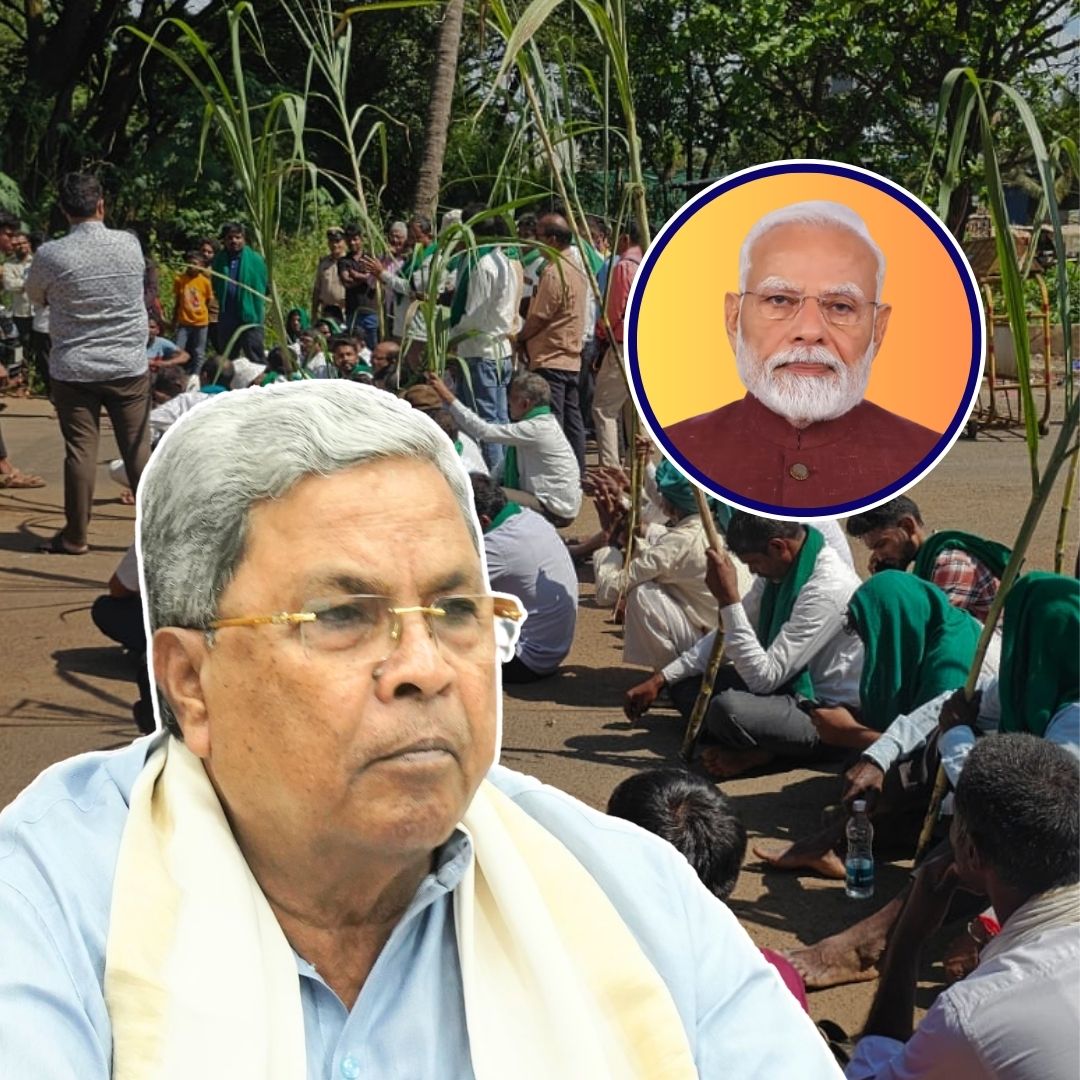Karnataka is witnessing an escalating crisis as sugarcane farmers across northern districts intensify their protests demanding a fair price for their crop. Chief Minister Siddaramaiah has urgently sought an appointment with Prime Minister Narendra Modi to discuss this growing unrest, which has significantly impacted districts including Belagavi, Bagalkot, Vijayapura, Bidar, Gadag, Dharwad, and Haveri.
Farmers are demanding a minimum support price of ₹3,500 per tonne, which they argue is necessary to offset rising costs and delayed payments, while the current price fixed by the Centre offers less than their expectations. The following detailed account deepens understanding of this critical issue.
Unfolding Crisis and Protest Demands
The agitation stems from sugarcane farmers’ dissatisfaction with the Fair and Remunerative Price (FRP) currently set by the central government at approximately ₹3,200 to ₹3,550 per tonne, excluding harvesting and transport charges. Farmers, led by unions such as under Chonappa Pujari, have staged continuous protests, road blockades, shutdowns, and halts at over 26 sugar factories, since early November.
In Belagavi, the protest reached a flashpoint with demonstrators throwing slippers at State Minister Shivanand Patil’s car to express frustration over perceived government inaction. Despite appeals from Minister Patil and Chief Minister Siddaramaiah, farmers remain firm, threatening to escalate with national highway blockades if their demands are unmet beyond the stipulated deadlines.
The protests have grown politically charged, with BJP state President B.Y. Vijayendra voicing support for the farmers and blaming the state government for neglect, while the Congress-led state stresses its commitment to resolving the crisis through dialogue.
Government Initiatives and Central Role
Chief Minister Siddaramaiah emphasised that the responsibility for fixing sugarcane prices rests with the Union government, which issued a May 2025 order setting the current rates. He accused the Centre of unfair practices and pledged to convene meetings with both sugar factory owners and farmers to seek a viable solution. A crucial meeting was scheduled for November 7 involving all stakeholders to discuss demands and potential price revisions. Karnataka ministers, including H.K. Patil and M.B. Patil, have actively engaged with farmers, while administrative officials have been dispatched to negotiate locally.
The state government has also introduced supportive measures such as digital weigh-bridges and free weighing machines to ensure transparency in transactions. Nevertheless, with the Centre yet to revise procurement norms or offer increased financial relief, farmers’ scepticism persists, and protests continue unabated.

Deepening Impact and Political Dynamics
The prolonged unrest has strained economic activities and worsened farmers’ financial distress amid delayed sugarcane payments from mills. With sugarcane generating substantial revenue for Karnataka through taxes on sugar, ethanol, and molasses, the government faces increasing pressure to act decisively.
Both major political parties are implicated in the controversy, with allegations of politicisation overshadowing genuine attempts to aid farmers. Opposition parties accuse the ruling Congress of failing to safeguard farmers’ interests, while Congress criticises the Centre’s control over pricing and export policies as hampering state efforts. The situation remains volatile, with farmers prepared to escalate protests if demands are not met promptly.
The Logical Indian’s Perspective
This crisis underscores the urgent need for empathy, transparent communication, and collaborative problem-solving among all stakeholders. The livelihoods of thousands of farmers, who sustain crucial rural economies and the broader national food chain, hang in balance.
The Logical Indian advocates for peaceful, constructive dialogue that transcends political posturing, focusing instead on equitable solutions. Sustainable agricultural policies must balance farmers’ economic rights with market realities through fair pricing, timely payments, and supportive infrastructure.
North Karnataka’s sugarcane farmers are in distress. Despite our best efforts, the issue demands Central intervention.
— Siddaramaiah (@siddaramaiah) November 6, 2025
I have sought an urgent meeting with Hon’ble Prime Minister Shri @narendramodi to resolve the crisis in the interest of our farmers and rural economy.
I am… pic.twitter.com/HMbuX9mZOA












